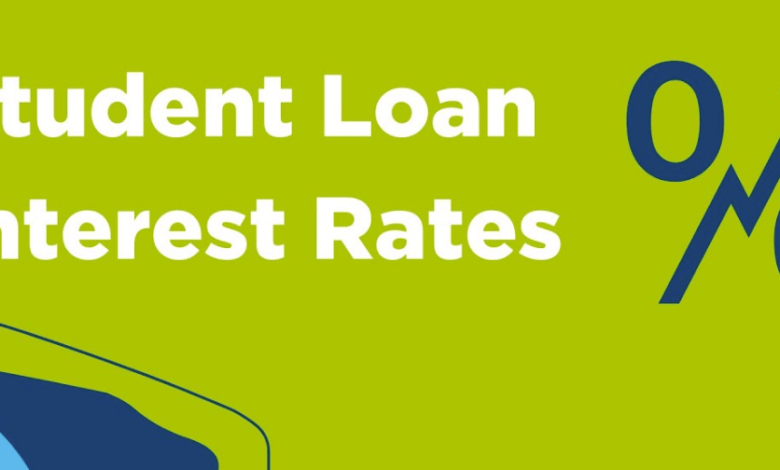What Is Student Loan Interest: A Comprehensive Guide

While these loans can be instrumental in achieving educational goals, it’s important to understand the various aspects associated with them. One crucial aspect is student loan interest. In this article, we will delve into the topic of what is student loan interest, discussing what it is, how it works, and why it matters. By the end, you will have a clearer understanding of this important financial concept.
1. Understanding Student Loans
Before we delve into the details of student loan interest, let’s first have a clear understanding of what student loans are. Student loans are financial instruments designed to help students cover the costs of their education, including tuition fees, books, living expenses, and more. These loans can be obtained from various sources, such as the government, private lenders, or educational institutions.
2. What Is Student Loan Interest?
what is student loan interest that refers to the additional amount charged by lenders on the principal balance of the loan. It is the cost borrowers must pay for borrowing the money. Interest is calculated as a percentage of the loan amount and is added to the overall balance, increasing the total amount that needs to be repaid.
3. Types of Student Loan Interest Rates
Fixed interest rates remain constant throughout the loan term, providing borrowers with stability and predictability in their monthly payments. Variable interest rates, on the other hand, fluctuate based on market conditions and can change periodically, leading to variations in monthly payments.
4. How Does Student Loan Interest Work?
Student loan interest works by accruing over time. When borrowers make payments towards their loans, a portion goes towards the interest, and the remaining amount is applied to the principal balance. As the principal balance decreases, the interest charged on the loan also reduces.
5. The Importance of Student Loan Interest
Understanding the importance of student loan interest is crucial for borrowers. Higher interest rates can significantly impact the total amount repaid over the life of the loan. By comprehending how interest accrues and its long-term implications, borrowers can make informed decisions regarding their repayment strategies.
6. How to Minimize Student Loan
Minimizing student loan interest starts with careful planning and proactive measures.
- Making extra payments: By paying more than the minimum required each month, borrowers can reduce the principal balance faster and save on interest charges.
- Enrolling in automatic payments: Many lenders offer interest rate reductions for borrowers who sign up for automatic payments. This can help lower the overall interest costs.
- Choosing a shorter loan term: Opting for a shorter repayment term may lead to higher monthly payments but can significantly reduce the total interest paid over the life of the loan.
7. Refinancing Student Loans to Lower Interest
Refinancing student loans is another option for borrowers looking to lower their interest rates.By refinancing at a lower interest rate, borrowers can potentially save money over the long run. However, it’s important to carefully consider the terms and conditions of refinancing before proceeding.
8. Federal Student Loan Tax Deduction
The federal government provides tax incentives to borrowers by allowing them to deduct student loan paid during the tax year. Eligible borrowers can claim a deduction of up to a certain amount, reducing their taxable income. This deduction can provide financial relief to borrowers while repaying their student loans.
9. The Impact of Interest on Loan Repayment
Interest plays a significant role in the overall repayment of student loans. Higher interest rates can prolong the repayment period and increase the total amount repaid. It’s important for borrowers to develop a comprehensive repayment plan that takes interest into account and ensures timely and efficient repayment.
10. Student Loan Interest vs. Principal Balance
Differentiating between student loan and the principal balance is crucial for borrowers. While interest is the cost of borrowing, the principal balance refers to the original amount borrowed. Understanding the relationship between interest and the principal balance can help borrowers monitor their loan progress and plan their repayment strategy effectively.
11. Pros and Cons of Student Loan
Like any financial concept, student loan has its pros and cons. Some advantages include access to funds for education and potential tax benefits, while disadvantages include the accrual of interest over time and the potential burden of high monthly payments. Borrowers should carefully weigh these factors and consider their individual circumstances.
12. Tips for Managing Student Loan
To effectively manage loan interest, borrowers can follow these tips:
- Stay organized: Keep track of loan details, repayment schedules, and interest rates.
- Make payments on time: Timely payments help avoid late fees and potential interest rate increases.
- Seek professional advice: Consulting with a financial advisor can provide valuable insights and personalized strategies for managing student loan.
13. Frequently Asked Questions (FAQs)
Q1: Can student loan rates change over time? A1: Yes, if you have a variable interest rate, it can change based on market conditions.
Q2: Is it possible to negotiate student loan interest? A2: Private lenders may offer the possibility of refinancing or negotiating interest rates, but federal student loan interest rates are set by the government.
Q3: Are there any tax benefits associated with student loan? A3: Yes, eligible borrowers can deduct student loan interest paid during the tax year, subject to certain limitations. Read more…
14. Conclusion
In conclusion, what is student loan interest is an essential aspect of borrowing money for educational purposes. By understanding the fundamentals loan interest, borrowers can make informed decisions, effectively manage their loans, and minimize the overall cost of borrowing. Remember to stay proactive, explore repayment options, and seek professional advice when needed. With careful planning and attention, you can navigate the world of student loan and successfully achieve your educational goals.
